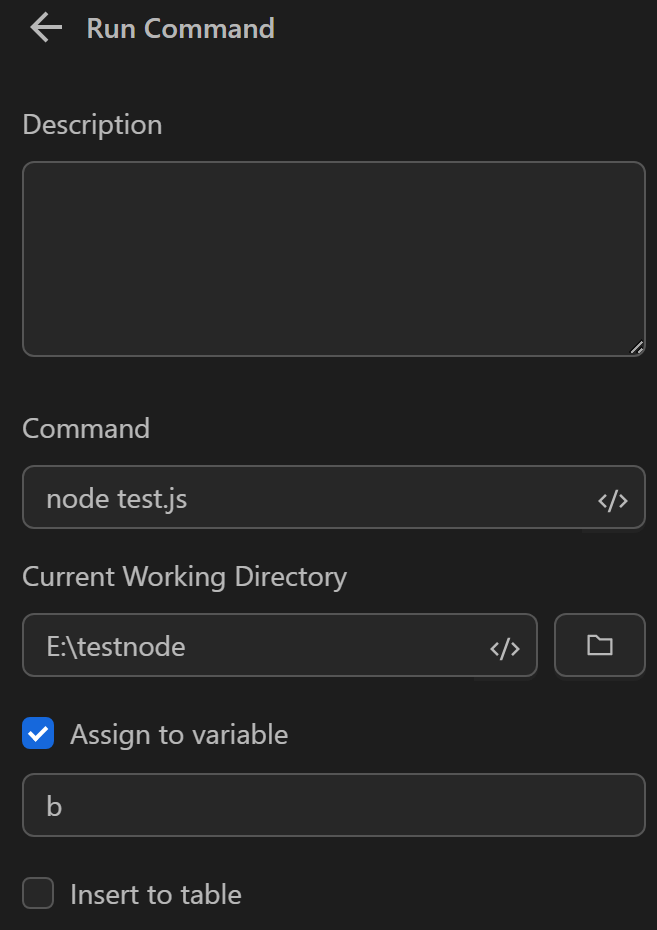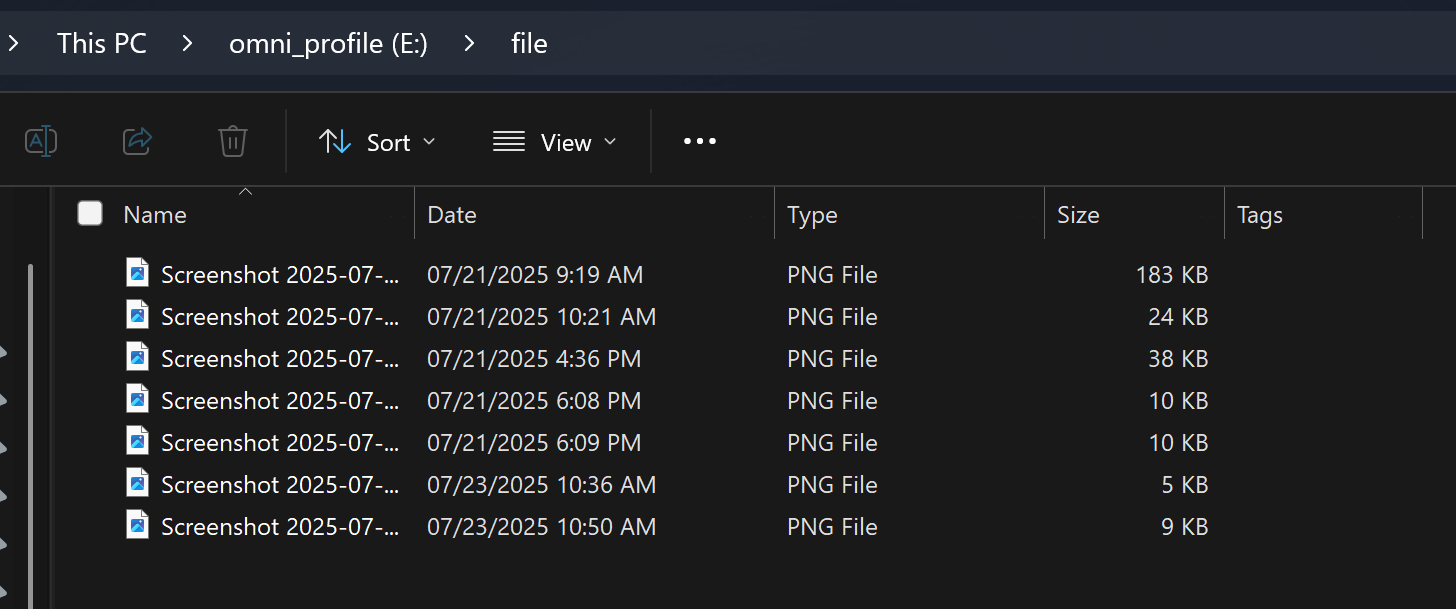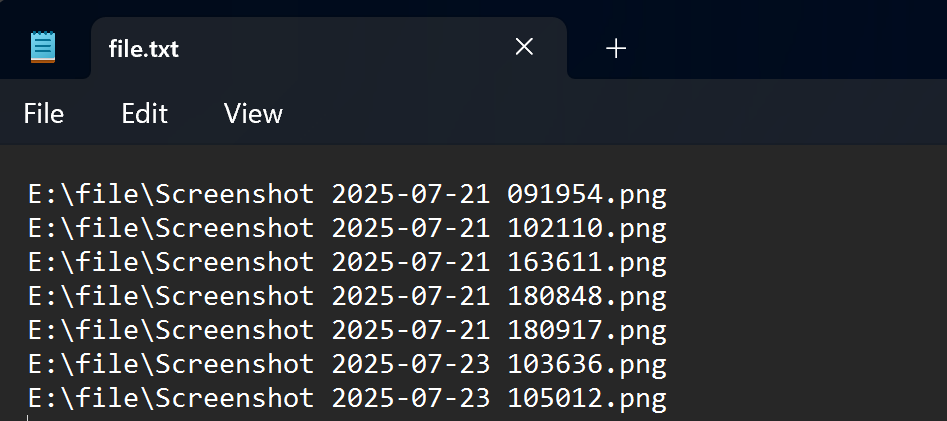Tool for Running System Commands
This node allows you to run system commands (CMD or Terminal) on the computer where OmniLogin is installed. Simply enter the command, and OmniLogin will execute it and return the result. This feature is highly useful for tasks such as checking disk space, viewing file lists, testing internet connectivity, restarting services, or running any.exe file.
Command to Run
The command to execute a file on your machine.

Current Working Directory
The folder containing the file to run in this node.

Assign to Variable
Assign the result of the command execution to a variable.
- Variable Name: Enter the name of the variable to store the text. This is optional when selecting "Assign to variable."

Insert into Table
Assign the command output to a column in a table.
- Select Column: The column where the text from the file execution will be inserted. This is optional when selecting "Insert into table."
Real-world Example
For example, to retrieve a list of file paths in a folder for a file upload workflow, configure the node as follows:
Obtain the path to the folder containing the image list, then prepare a text file (create it beforehand or let the command create it).

Configure the Run Command node with the following command

The command dir E:\file" /b /s /a-d > "E:\file.txt means the following:
dir: Lists files."E:\file": The directory to list files from./b: Displays file names only (bare format)./s: Includes the full path./a-d: Lists files only, excluding directories.>: Redirects output to a file."E:\file.txt": The output file; if it doesn’t exist, it will be created with the file list.
The file.txt will contain the file paths as shown below

